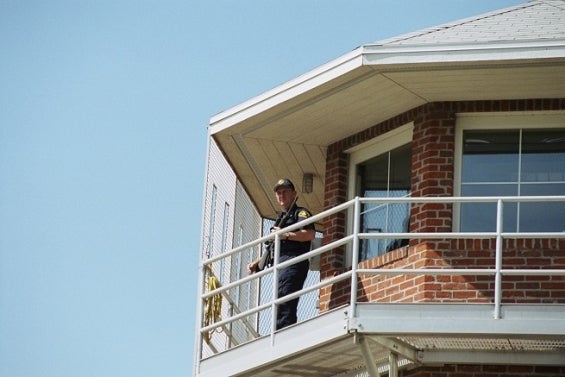Headline News
Private Prisons Are a Net Loser for the Public

Governments, pressed by the corporate class, have in recent years increasingly looked for ways to outsource duties and services that could provide them with income. The growth in private prisons, as a result, has soared.
Such facilities held nearly 130,000 of the 1.6 million state and federal prisoners in the U.S. as of 2010, according to a report by the Sentencing Project. That’s up 80 percent since 1999. But there are real questions about whether such facilities have been good stewards of the taxpayers’ dollars. Although on the surface it may seem that having a company provide incarceration services for a fee would be a net win for the public, corporate prisons have become another example of the private sector doesn’t always know best.
One of the ways such outfits pad their bottom lines is to create “lockout quotas,” which means the operating company sets a minimum they get paid, no matter how occupied the facility is. So in some cases, taxpayers are paying for empty cells. About two-thirds of private prisons have such agreements.
Thankfully, there are signs some public officials are seeing the light. Nebraska state Sen. Amanda McGill (D) introduced legislation that would bar the practice in her state and would also amend the state’s corrections contracting law in a variety of ways to both protect taxpayers and regulate prison companies more tightly.
Companies like the Corrections Corporation of America (CCA) have used such policies to fill their coffers while skimping wherever it can – like additional staff to ensure public safety. Such facilities have been championed by the American Legislative Exchange Council and its cronies as a good move. But history shows it leads to fewer good-paying union jobs and corruption.
A prime example arose in Pennsylvania, where two judges received some $2.6 million kickbacks from private prison interests for sending thousands of kids to private juvenile facilities for petty or questionable violations. The scandal will be told in an upcoming documentary, “Kids for Cash.”
Prisons are not the only instance of the government turning its back on responsibilities that fall under its umbrella. Whether we’re talking about schools or utilities such as water and power, the public trust is being increasing sold to private interests. But not only hurting are those dealing hurting people’s pocket books, they are threatening their safety and even their future.
Some things just shouldn’t be for sale.